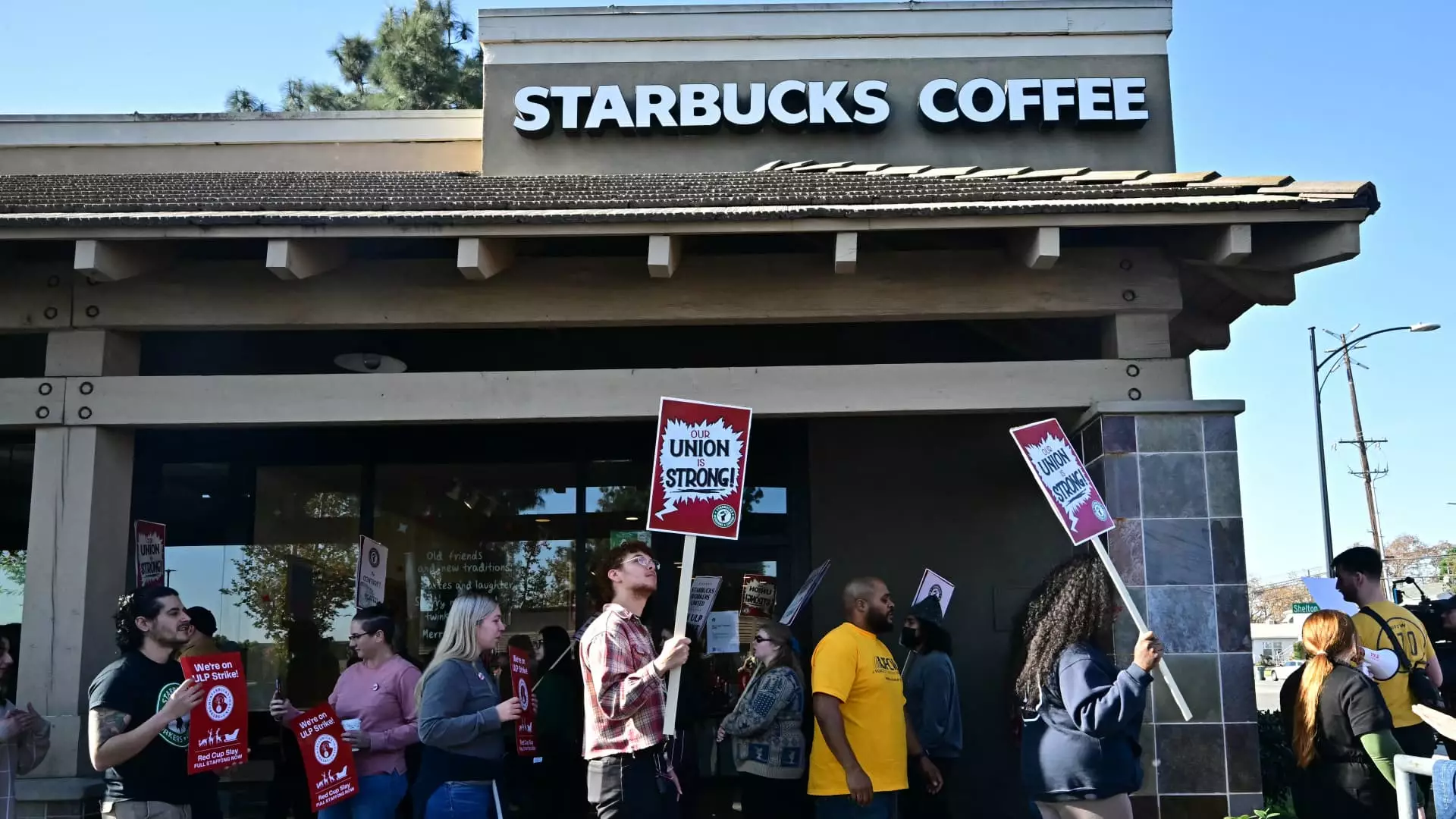As the holiday season approaches, Starbucks finds itself at the center of a growing labor dispute involving approximately 5,000 employees across more than 300 locations in 45 states. While these figures might represent only about 3% of the vast network of Starbucks outlets in the U.S., the implications of this strike echo much louder, especially during a peak business period. This escalation follows last week’s localized strikes in select cities, highlighting significant dissatisfaction among baristas who feel their calls for better working conditions have gone unheeded.
The strike, organized by the Service Employees International Union (SEIU) and Starbucks Workers United, aims to spotlight what workers say are unfair labor practices and frustratingly slow negotiations for a collective bargaining agreement. Central to their demands is a staggering proposed wage increase, with baristas seeking an immediate hourly wage boost of up to 64%. In addition, they are advocating for a total wage increase of 77% over three years. This push for better compensation reflects a growing trend where workers across multiple sectors are seeking recognition of their contributions, particularly during a time when inflation and the cost of living continue to rise sharply.
Lynne Fox, president of the Workers Union, has emphasized the refusal of workers to accept a lack of immediate investment in their wages while underscoring the growing sentiment among baristas regarding their worth within the company. The union’s call for fair treatment resonates not just within Starbucks but across a spectrum of industries grappling with workers’ rights and fair compensation.
In response, Starbucks has publicly stated that the demands made by the union are not sustainable, suggesting a disconnect between management’s perspective and the realities faced by employees. Sara Kelly, the executive vice president at Starbucks, noted in a memo that the union walked away from negotiations, casting doubt on the union’s commitment to dialogue. She reiterated the company’s current package of employee benefits, claiming that workers average around $30 per hour when factoring in pay and benefits.
Such statements from management, while showcasing the company’s commitment to overall employee satisfaction, might appear dismissive to striking workers who feel their immediate needs are not being addressed. This divergence in views showcases a significant divide between corporate management’s approach to employee compensation and the actual needs and concerns voiced by baristas on the ground.
The labor unrest at Starbucks brings to light overarching issues concerning worker rights and corporate responsibility, particularly within the food and service industry. The striking baristas are not only combating for immediate wage increases but are also advocating for respect and recognition within a major corporation that has flourished during the COVID-19 pandemic.
As Starbucks navigates these challenges, the company must weigh the potential repercussions of labor disputes not only on its brand reputation but also on employee morale and the broader labor movement. Unrest like this could serve as a catalyst for more extensive labor actions nationwide, pushing discussions about labor rights—including fair wages—into the spotlight.
In uncertain economic times, how Starbucks addresses these employee grievances could set a precedent for corporate labor relations moving forward. The stakes are high, but so too are the opportunities for genuine partnership and improved working conditions in this evolving landscape.


Leave a Reply